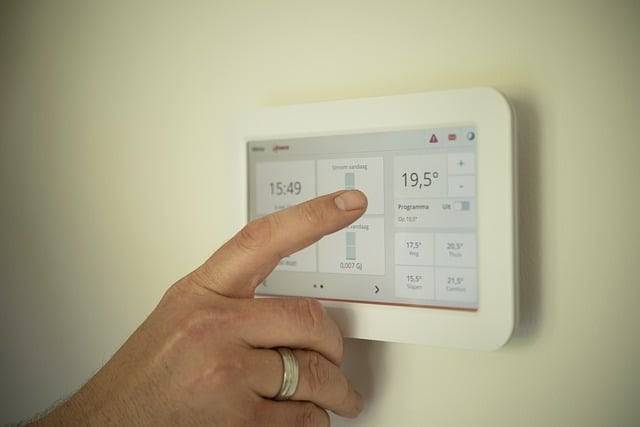Winter is coming! With winter in mind, are you prepared for the costs of heating your home? Your home’s price increases from 20% to 100% based on location. If you feel like, with the price, you’re out of options.
This might feel like it’s the end for you. Don’t feel defeated; there’s one more option for you! A heat pump system can benefit you and your home.
If your question, “Is a heat pump system right for my home?” doesn’t go heating-hating, read more.
What is a Heat Pump System?
A heat pump system is a versatile and efficient technology that provides heating and cooling for your home or business. It transfers heat from one area to another rather than generating heat. Heat pumps use refrigerant to absorb heat from sources such as the air, ground, or water and then deliver it to the desired space.
Heat Pump Benefits
Energy Efficiency
Heat pumps are known for their exceptional energy efficiency. Transferring heat rather than generating it can provide substantial energy savings for homeowners and businesses. According to the U.S. Department of Energy, heat pumps can reduce electricity use by up to 50% compared to conventional HVAC systems. This translates into significant cost savings on your energy bills.
Versatile Heating and Cooling
One of the significant advantages of heat pumps is their ability to heat and cool your space. Using the refrigeration cycle, heat pumps can reverse the heat flow, allowing them to cool your home in the summer and provide warmth in the winter. This versatility eliminates the need for separate heating and cooling systems, saving space and money.
Environmentally Friendly
Heat pumps are an environmentally friendly heating and cooling option. Because they don’t burn fossil fuels to generate heat, they produce fewer greenhouse gas emissions and have a lower carbon footprint than traditional heating systems. By choosing a heat pump, you can contribute to a greener future while enjoying the benefits of efficient comfort.
Consistent Comfort
Heat pumps provide consistent indoor comfort throughout the year. Unlike traditional heating systems that can produce uneven heat distribution, heat pumps maintain a constant temperature in each room. This eliminates hot or cold spots and creates a comfortable living or working environment.
Heat Pump Installation
Installing a heat pump system requires the expertise of a professional HVAC technician. They will assess your home or business to determine the most suitable heat pump. Factors such as the size of your space, insulation, and climate will be considered to ensure optimal performance and energy efficiency.
Proper sizing is crucial when it comes to heat pump installation. An undersized heat pump will struggle to meet your heating and cooling needs, leading to inefficiency and potential breakdowns. On the other hand, an oversized heat pump will cycle on and off frequently, resulting in energy wastage. An HVAC technician will calculate the appropriate size and capacity of the heat pump for your space.
The installation begins with placing the indoor and outdoor components of the heat pump system. The indoor unit is typically mounted on a wall or ceiling, while the outdoor unit is positioned in an appropriate location outside your home or building. The technicians will connect the units with electrical wiring and refrigerant lines, ensuring proper functionality and efficiency.
After the installation, the HVAC technician will test and commission the heat pump system. They will check for leaks, adjust settings, and provide instructions on effectively operating and maintaining your new system. It’s essential to follow these guidelines to maximize the lifespan and performance of your heat pump.
Maintaining Your Heat Pump System
Regular maintenance is crucial to keep your heat pump running smoothly and efficiently. Here are some essential maintenance tasks to consider:
Regular Filter Replacement
Air filters play a vital role in maintaining good indoor air quality and ensuring the smooth flow of air in your heat pump system. They should be checked and replaced regularly, usually every one to three months. Clean filters improve energy efficiency and prevent dust, dirt, and debris from clogging the system.
Cleaning the Outdoor Unit
The outdoor unit of your heat pump can gather dirt, leaves, and other debris over time, affecting its performance. Regularly cleaning the team and removing obstructions will help maintain optimal airflow and prevent potential issues.
Annual Professional Maintenance
While you can do some maintenance tasks independently, scheduling an annual professional maintenance visit is highly recommended. HVAC technicians have the expertise to inspect and service your heat pump system thoroughly. They can identify and rectify any minor issues before they become significant problems, ensuring optimal performance and longevity.
Heat Pump System Repair
A heat pump system can be a highly efficient and cost-effective way to heat and cool your home, but like any HVAC system, it may require repair and maintenance over time. Homeowners considering a heat pump system should be aware of the potential repair needs and costs associated with this type of system.
Regularly changing air filters, checking for refrigerant leaks, and keeping the outdoor unit free of debris are essential maintenance tasks that can help prevent major repairs. Choosing a qualified and experienced technician is crucial when repairs are necessary to ensure the job is done correctly.
Homeowners should also consider the age and condition of their heat pump system when deciding whether to repair or replace it. Overall, a heat pump system can be a beneficial investment for your home, but it is essential to be aware of the necessary maintenance and repairs.
Enjoy the Heat Pump System Benefits
In conclusion, a heat pump system is a valuable and energy-efficient heating and cooling solution for homeowners and businesses. With their ability to transfer heat rather than generate it, heat pumps provide substantial cost savings on energy bills and reduce environmental impact. Their versatility, consistent comfort, and long-term benefits make them worth investments. “Is a heat pump system right for my home?” is now answered.
If you are considering installing a heat pump system, consult a professional HVAC technician who can guide you. They will assess your requirements, ensure proper sizing and installation, and provide valuable maintenance advice. By following regular maintenance practices and seeking professional help, you can enjoy efficient and reliable operation of your heat pump system for years. Choose a heat pump today and move toward energy-efficient and comfortable living or working spaces. Visit our website and learn more about available heat pump systems.


